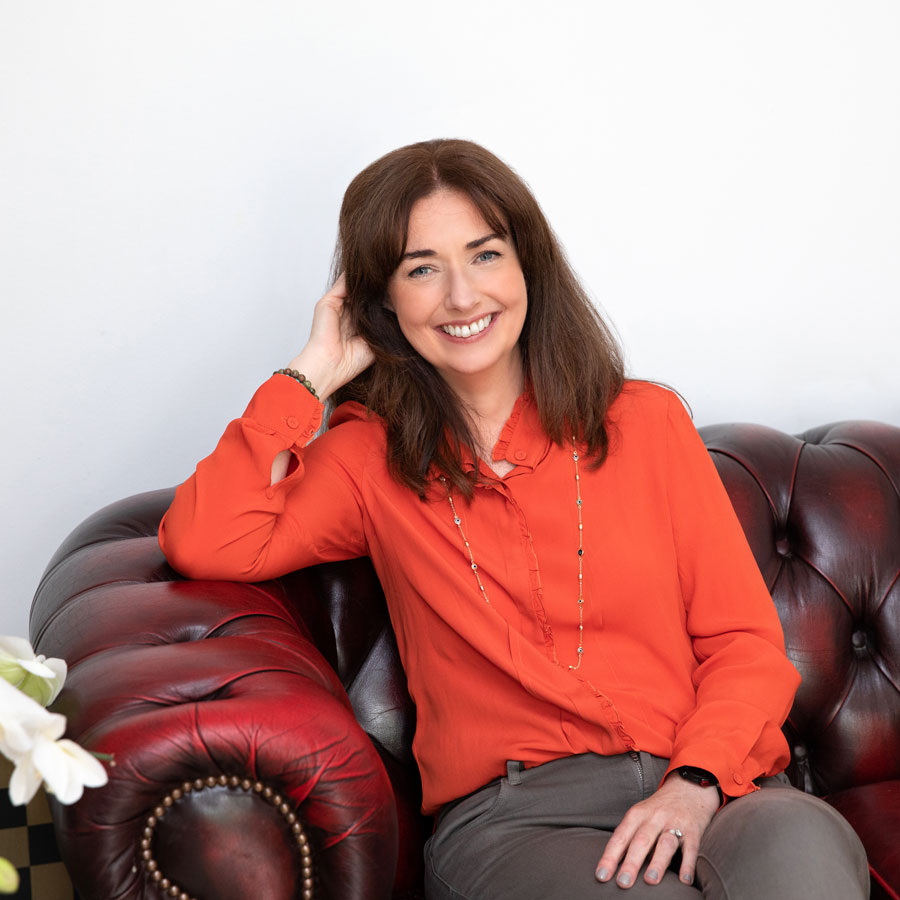From lifestyle changes like diet, exercise and sleep, to HRT and alternative therapies, Catherine O’Keeffe, founder of the Menopause Success Summit, shares her advice for managing your menopause journey …
Psychological health
The ‘Menopause in the Workplace’ survey I ran in 2021 showed the top four symptoms of menopause being psychological in nature – brain fog, anxiety, insomnia, loss of confidence. Understanding the impact on changing hormone levels and your body’s response to psychological distress provides the key to unlocking how to deal with it. View your body’s response as an ally, not as an enemy. Understanding can help to take the fear away.
Take time to acknowledge your emotions – including anger, anxiety and sadness. Anger and frustration can come in blasts like a blazing furnace. Know that all emotions are valid and energetic; accept and seek support from loved ones or professionals when needed.
Another crucial care aspect is making sure to mind yourself. Take time to be present, use your breath which is always with you when moments of anxiety happen. Take breaks and unplug from technology throughout the day. When you feel yourself getting anxious, opt for a five-minute walk outdoors with plenty of deep breaths.
At work make sure to ask for help when you need it. Find a trusted source, whether that’s your manager or a work colleague, someone that you can open up to when you are having a hard time. I am a big fan of Employee Assistance Programmes, and they can be very helpful during menopause. While we can get support from family and work colleagues, it is also nice to have an independent ear to talk to.
Lifestyle changes
How we live our lives each day is key! I would encourage you to look at your daily habits and see what changes you can make, start with diet, movement and sleep, as outlined below:
Diet
We are what we eat so make sure you are incorporating good food throughout the day. Ensure you are getting a varied diet with fruit and vegetables, protein and carbs – yes, you do need carbs, they are essential for energy. Remember nuts and seeds are powerhouses of nutrients. Stay hydrated – it can be very common to be dehydrated in these years so ensure good fluid intake. Omega 3, B6, B12, Biotin and Vitamin D are key throughout menopause too – include through the foods you consume or supplement where needed. And lastly be mindful of when you eat – late night snacking is a burden on a good nights’ sleep as well as weight management.
Movement
If we look back at our ancestors, life was full of constant activity, from hunting to basic survival. Humans thrive on movement – we are not built for sedentary lives. Prioritise daily movement for health benefits. Commit to it, schedule it in your calendar, partner with a friend for motivation. Begin slowly, with 20 minutes of walking, increasing intensity over time. Weight bearing and resistance training combined with a mix of cardio exercise throughout your week is key.
Sleep
Good sleep habits improve short- and long-term wellbeing. Our bodies love routine around sleep, going to bed at the same time every night and waking at the same time each day is important. Restorative sleep is the foundation of thriving through menopause. Daytime movement aids sleep so avoid intense exercise before bedtime (apart from sex of course). Manage stress with calming routines and minimise evening screen exposure.
HRT
Daily habits and lifestyle choices will greatly enhance your experience of menopause. HRT can be another part of your personal menopause toolkit where needed. If you don’t know where to start with HRT, follow the five steps below:
1. Take the time to find the right doctor for you, ideally a doctor with an interest in menopause and/or BMS (British Menopause Society) trained. Menopause is not a short journey and it is important to have a supportive, collaborative relationship with your doctor through these years. It’s a good idea from the age of 40 to have an annual check with yourself – if all is hunky dory then that’s great. If you’re not feeling yourself, then a check-up with your doctor can be beneficial and ensure you are staying on top of your health.
2. Understand your personal situation, your medical history and what that means in relation to your options.
3. Mild, moderate or severe – this is a great starting point for which to assess your symptoms. If mild then lifestyle changes can be the answer, moderate or severe you may want to get support from your GP or look at your other options.
4. Be patient – like everything it can take time for HRT to take effect. It’s few women who feel the effects are lifechanging within 24 hours, for many it’s back and forth with your doctor to get it right – the dosage or the form.
5. If HRT is not an option, discuss alternative medication with your doctor. This could be antidepressants or other medication that may offer support with the vasomotor symptoms of menopause and also with your mental health.
Alternative therapies
Three effective alternative menopause therapies include acupuncture, reflexology and herb treatments.
Acupuncture originated in China approximately 3,000 years ago. Your acupuncturist will place tiny, sterile needles under the skin at certain locations on your body where qi, or life energy, flows. To stimulate energy, needles are inserted and left on these locations for roughly 20 minutes. The body’s natural painkillers (endorphins) may be released. Acupuncture can help with menopause symptoms since it not only reduces pain but also improves blood flow and balances energy flow.
Reflexology is the practice of testing reflex points and locations on the hands and feet that correspond to different parts of the body. In menopause it helps to regulate hormones and glandular function of the body.
Herbs have been used for many years for healing and there are many excellent herbs for menopause for example maca, rhodiola, ashwagandha. There are different therapies that can be investigated also – the world is your oyster in this respect. The important thing is to be empowered with information so that you understand your options and can make an informed choice.
Remember menopause not only impacts the person going through it but all the touchpoints in that person’s life. If you look after yourself in these years, it won’t be just you that benefits, but those around you too.
Menopause Success Summit takes place at Royal Marine Hotel, Dún Laoghaire, Saturday October 14 2023. Tickets available here: www.menopausesuccesssummit.com.











